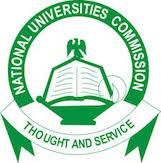Education
Sultan of Sokoto, Zulum laud Osinbajo’s Passion for Education of N/East Children

The Sultan of Sokoto, Muhammadu Abubakar and Gov. Babagana Zulum of Borno, have commended Vice President Yemi Osinbajo for his commitment to education of the vulnerable children in the North-East.
The duo spoke at the fifth anniversary of the North-East Children’s Trust (NECT) School, known as North-East Learning Centre, on Monday in Abuja.
The centre, located in Maiduguri, Borno, is an initiative of the vice president with a view to providing educational and extensive-care support to 10,000 children orphaned or displaced by the Boko Haram insurgency in the North-East.
Abubakar, who described NECT as an excellent initiative, lauded the vice president and every other person involved in the scheme.
“I will like to thank you, the vice president for your commitment and concern; pursuing such projects not only to start, but being maintained and even marking the fifth anniversary having taken off in April, 2018.
“I will like to thank the Governor of Borno for your total commitment and selfless service to humanity.
“In the last three years, we have been seeing what you are doing; definitely, with your support, this project, NECT is gaining strength and strength; because it is very important for us as religious leaders, you know the importance of taking care of the orphans and the less privileged.
“We want to thank the initiators of this project; and all those who have had a hand one way or the other to see this fifth anniversary of NECT becomes a success.
“It is an excellent initiative,’’ he said.
On his part, Zulum commended the vision of the vice president in establishing NECT in Borno.
According to him, Borno has about 39, 311 orphans; and a total of about 50, 000 widows.
“These are official figures; the unofficial figures are more than this; and therefore, establishing this learning centre, particularly in Maiduguri, will go a long way in reducing the number of out-of-school children in Borno State.
“One very important aspect of this learning centre is that it is critical to development.
“In addition to providing intensive literacy and numeracy to the children, this school also offers strong technical and vocational education to the pupils; it offers strong digital literacy to the students.
“And I think, this is the type of education that we are looking for; because it will make the students to become self-reliant,’’ he said.
In his remarks, Osinbajo, just before cutting the anniversary cake, went down the memory lane and paid tributes to former Governor of Borno, Kashim Shettima, for the role he played in setting up NECT.
He said: “I want to start by saying that when in 2016, I visited Borno, it was in 2016 not 2018; 2018 was when the school was opened.
“It took about a year to build, but our first encounter was in 2016; and we started raising the funds in 2016 and March 2017 and spent almost a year getting the school built. 2018 was when the first children were taken into the school.
“But, I want to say that the then Governor of Borno, Shettima and I visited a number of IDP camps when I visited Borno, and, both of us came to a conclusion that something has to be done.
“Of course, the Borno Government was already doing a lot of work; trying to accommodate the students; trying to build schools and all that.’’
The vice president said the choice land where the school was built was allocated by Shettima.
According to him, Borno has been possibly one of the luckiest states in this country; just going by the leadership that the state has been having.
“Immediately after Shettima, comes Zulum; no state can for better than Zulum taking over from a dynamic predecessor, Shettima.
“I have been told that about 173 of the children are now in secondary school; even the schools, the buildings of the school, I was in Borno about three weeks ago or so and we went round and saw the school; we met these young men and women who are now in secondary school.
“I think ultimately, service to the people is what our being in government is about; if we are not able to serve the people with everything we have; with all our hearts, then, our role is really quite irrelevant; perhaps, unjustified.
“So, I want to really commend Zulum and of course, his predecessor for the great work they have done,’’ he said.
Osinbajo hailed the board and teachers of the centre for the excellent work they were doing in running the institution; directing policy; directing the plans and purposeful teaching.
Earlier, Jim Ovia, the NECT Board Chairman, also commended the vice president for the initiative, saying that he felt honoured to join in ensuring that the project was successful.
Also, Dr Mariam Masha, the Executive Secretary of NECT, said that the commitment to deliver on the mandate remained very strong.
However, the event attracted the presence of governors, members of the Federal Executive Council, traditional rulers, members of the National Assembly, members of the diplomatic corps, among others.
It also featured cultural dance and showcase of talents in robotics, computer programming, word puzzle, among others by students of the centre.(NAN)
Education
Benue Orders Refund of N106,000 WAEC/NECO Fees charged by School

The Benue State Government, through the Education Quality Assurance and Examinations Board, BEQAE, has directed Jewel Model School, Makurdi, to immediately reverse the N106,000 being charged to parents for the registration of West African Examination Council, WAEC, and National Examinations Council, NECO, describing the levy as excessive and unjustifiable.
The directive followed a series of petitions from aggrieved parents who accused the school of imposing arbitrary examination fees.
Acting on the complaints, the Board summoned the school’s proprietor, principal and members of the Parents-Teachers Association, PTA executive to a meeting in Makurdi where they reportedly failed to justify the amount being demanded.
Speaking during the engagement, the Executive Secretary of BEQAEB, Dr. Terna Francis, clarified that the officially approved fee for WAEC registration was N28,000, while NECO was yet to announce its charges for the 2026 examinations.
“Schools are only permitted to collect officially approved examination fees, with a handling charge not exceeding N5,000 per examination,” Francis stated.
He further stressed that candidates were not mandated to register for both WAEC and NECO, noting that such decisions should be left to parents and students.
“Registration for WAEC and NECO is optional, not compulsory. Any additional costs must be transparently discussed and mutually agreed upon by parents, not imposed without consultation,” he added.
Francis also expressed concern over reports that parents at the school had been denied platforms to air their views, alleging that PTA meetings had not been held for nearly two years and that parents were restricted from commenting on the school’s WhatsApp communication platform.
He equally condemned the practice of routing school and examination payments through the proprietor’s personal bank account, describing it as a breach of accountability and transparency.
“Such practices undermine proper auditing and are unacceptable in a regulated educational system,” he said.
Francis consequently, directed the Director of Enforcement and Compliance Operations, Rev. Fr. Dr. Terungwa Tor, to place the school under close monitoring to ensure full compliance with the Board’s directives.
Warning against the exploitation of parents, Francis noted that schools found imposing undue financial burdens on learners risk severe sanctions, including the withdrawal of their operating licenses.
“These exploitative practices only worsen the problem of out-of-school children, which the government is determined to address,” he said.
Education
UNIZIK: Students Urge FG to Implement Industrial Court Judgment, Reinstate Odoh as VC

Some students of Nnamdi Azikiwe University (UNIZIK), Awka, have called on the Federal Government to fully implement the judgment of the National Industrial Court by reinstating Professor Bernard Odoh as Vice-Chancellor of the institution.
The students, operating under the aegis of the Nigerian Students and Youth Association, UNIZIK chapter, urged the Minister of Education to act without further delay in reinstating Professor Odoh, in strict compliance with the court’s ruling.
President of the group, Chisom Nwangwu, recalled that Professor Odoh was removed from office by the Federal Ministry of Education following allegations that he was not a professor and therefore unqualified to occupy the position.
However, he said the National Industrial Court had since affirmed that Professor Odoh was duly promoted to the rank of professor in 2015 and consequently ordered that all his rights, entitlements and privileges be fully restored.
Nwangwu stressed that respect for court judgments is fundamental to nation-building and should not be treated as optional, urging Nigerians and government institutions to obey court orders if the country is to be firmly rooted in the rule of law.
He expressed concern that the continued failure to implement the court’s ruling, especially in a situation where the office of the Vice-Chancellor was neither legally nor practically vacant, sets a dangerous precedent.
“This persistent disregard for a valid court order undermines democratic values and sends the wrong signal to citizens. Such actions should not be allowed to define us as a people or as a democratic society,” Nwangwu said.
He noted that Professor Odoh is the first alumnus of Nnamdi Azikiwe University to be appointed Vice-Chancellor, describing his removal as regrettable and driven by what he termed malicious claims aimed at frustrating a young academic with a progressive vision for the development of the university.
The student leader also appealed to President Bola Tinubu to intervene in the matter, noting that his administration is anchored on the principles of justice, fairness and respect for the rule of law.
According to him, such an intervention would help reaffirm public confidence in democratic institutions and reassure young Nigerians that justice, fairness and equality before the law remain attainable in the country.
| ReplyReply allForwardAdd reaction |
Education
NUC Opens Nigeria’s University Space to Foreign Institutions

The National Universities Commission (NUC) has lifted the embargo on the establishment and operation of foreign universities in Nigeria, a move aimed at attracting foreign direct investment and boosting the global competitiveness of the country’s higher education system.
The Executive Secretary of the NUC, Professor Abdullahi Yusufu Ribadu, announced the decision at the weekend during the 10th convocation ceremony of Gregory University, Uturu, Abia State.
He said the policy shift was designed to deepen international collaboration and strengthen the quality of university education in Nigeria.Represented at the event by Offor Chukwuemeka, Ribadu explained that foreign universities would be allowed to operate in Nigeria through six approved partnership models: franchise arrangements, branch campuses, twinning or articulation programmes, open and distance learning, acquisition, and teaching institutions.
He said the Commission had also introduced a Code of Governance for private universities to ensure uniform standards, transparency, and accountability in their operations. In addition, Ribadu noted that the NUC had carried out major curriculum reforms, replacing the Benchmark Minimum Academic Standards (BMAS) with the Core Curriculum and Minimum Academic Standards (CCMAS).
Under the new framework, he said, the NUC provides 70 per cent of compulsory core courses required for graduation, while universities are allowed 30 per cent flexibility to customise their curricula in line with their areas of expertise and emerging global trends.
The NUC boss emphasised that the reforms were geared towards equipping Nigerian graduates with 21st-century skills and enhancing their employability. He commended Gregory University for its contributions to educational innovation and development.
Abia State Governor, Dr. Alex Otti, in his remarks, praised the founder of the institution, Professor Gregory Ibe, for his vision and commitment to quality education. Represented by the Commissioner for Tertiary Education, Professor Uche Eme Uche, the governor reaffirmed his administration’s support for educational transformation in the state.
The Vice-Chancellor of Gregory University, Professor Cele Njoku, disclosed that the university had grown from three colleges to 12 in 13 years, now boasting over 53 academic departments. She added that all eight academic programmes submitted to the NUC in 2024 received full accreditation, while new courses, including Artificial Intelligence and major foreign languages, had been introduced.
Founder of the university, Prof. Gregory Ibe, represented by the Pro-Chancellor, Prof. Augustine Uwakwe, said the institution was established to make quality education accessible to Nigerians and pledged continued investment in education.
The overall best graduating student, Master Onyechere Chinedum Yadirichukwu, who graduated with a CGPA of 4.91, urged young Nigerians to take responsibility for shaping the nation’s future.
The convocation ceremony also featured the award of honorary doctorate degrees to former Enugu State Governor Ifeanyi Ugwuanyi; Chairman of the Abia State Council of Traditional Rulers, HRM Eze Linus Nto Mba; and Chairman of the Manufacturers Association of Nigeria, Imo State chapter, Dr Okenze Sylvester Obinna.

























